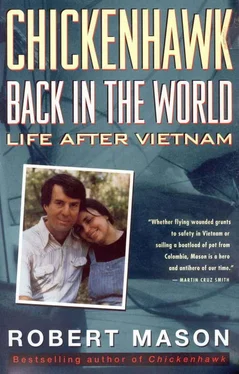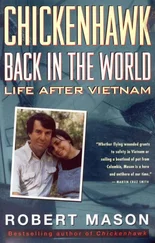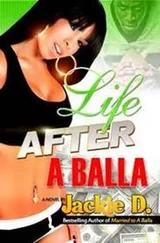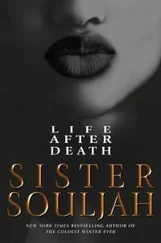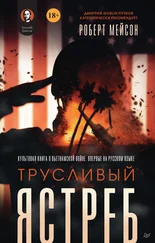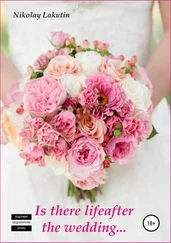There was much applause. I scanned the room. I saw smiles. I saw tears. Nobody got up to walk out.
I then read them the story I’d written, “ The Race ,” which, as I had hoped, met with success. Racing buses filled with mooning forty-year-olds is just naturally funny, especially to the participants. I brought the house down.
I talked about some early experiences I’d had as an adolescent pilot trying to teach myself to fly and got a lot of laughs.
Then I faced the issue of my controversy.
“A situation that irks some of my fellows here, and is an issue of curiosity for others, is, what did happen at the end of the book?
“For those of you who haven’t read Chickenhawk , I say, at the end of the epilogue, that I had been arrested for smuggling marijuana and I was appealing the conviction. That sounds pretty serious. It was. In fact, I lost the appeal. I went to jail.”
It was quiet in the auditorium. Someone coughed.
I launched into a quick-paced summation of selling the book and going to jail. I told them what it was like being sent to Eglin. I told them about the white lines that marked the boundaries, that it was a prison for wimps, that if you had to go to prison, Eglin was the place to go. I made Eglin seem like a lark. I made them laugh.
I paused.
“But it was still prison. I couldn’t leave.
“When my book became a best-seller, it didn’t seem real. Because, while I was experiencing the highest moment of life, I was also experiencing the lowest moment of my life. I was not proud of what I’d done or for going to prison. I was humiliated and embarrassed. Yet, at the same time, I was experiencing this wonderful success. It was a tough mixture of emotions for me.
“But it’s over now, or nearly so. For those of you who think I haven’t paid enough for what I did, I’m still on parole. As a matter of fact, I’m here courtesy of the U.S. Parole Commission. It’s been seven years since I committed my crime. I’ll be off parole this December. I’m looking forward to that.”
I made Jerry Towler stand up, introduced him as my flying partner and the Resler in the book.
When I finished, the applause was astounding.
I wasn’t able to walk anywhere for the rest of the reunion without someone coming up and telling me I was okay. I needed that.
In August 1989, David Hunt and Kevin Bowen of the William Joiner Center at the University of Massachusetts (which is trying to get decent medical care to the Vietnamese) invited me to come to Boston to meet a group of Vietnamese writers—former Viet Cong and North Vietnamese regulars, VC and NVA, as they were known to me. Philip Caputo, Tim O’Brien, and other American writers of the Vietnam War were also coming. They wanted to know if I’d give a reading with Tim O’Brien. I agreed.
Patience and I flew to Boston. During the drive from the airport, David Hunt told us that their public meeting with the Vietnamese the day before had ended in disaster. South Vietnamese refugees broke up the meeting, injured some of the guests. Now, he explained, they were holding the rest of the conference at Kevin Bowen’s home in the Dorchester section of Boston.
We climbed the stairs up to the attic of the three-story house where the meeting of American and Vietnamese writers had already started. Three Vietnamese sat together on a couch at the front of the room: Le Luu, who wrote a Vietnamese best-seller, The Humorless Colonel ; Nguyen Khai, a writer and the deputy general secretary of Vietnam’s Writers Union; and Nguyen Quang Sang, who’d written a novel, four short-story collections, and produced several films about the war. About ten people sat facing them in folding chairs, five of them writers: novelists Philip Caputo, Wayne Karlin, Tim O’Brien, and two poets, Larry Rottman and Bruce Weigl. They stopped talking for a second when Patience and I walked in, and then continued after we sat down.
In this first meeting, the discussion was about the war as seen by the different sides. It was an opportunity to ask questions of your former enemies. An American asked, “What did you think of the American troops’ fighting ability?”
Le Luu, the most popular novelist in Vietnam, shook his head and smiled. “Generally,” he said through an interpreter, “they weren’t very good fighters.”
I felt myself getting excited; I had wondered how I’d react. I had been against us being in Vietnam, but then, these guys had killed some of my friends. I had never seen a living North Vietnamese regular, and very few living Viet Cong. One of them might have been the guy who shot me down. It was an eerie feeling to face former enemies.
Philip Caputo, a former Marine lieutenant, replied, “You’re saying we were bad fighters?” Caputo looked pissed off.
The interpreter, a young man who wasn’t born until after the war, shrugged, translated. Nguyen Khai, the leader and diplomat among the Vietnamese contingent, smiled nervously. There was great pressure in Vietnam to regain normal relations with the United States. I think he sensed the tenseness in the air.
“Not bad in the sense that you were cowardly or unprofessional,” Khai answered. “You were simply not as well motivated as were we. We, after all, were defending our country—”
Sang broke in, his voice deep, his smile wide. “When you did not have your fighters and helicopters and B-52s to support you, you were easy to beat.”
Caputo answered grimly, “I saw plenty of firefights where we took you one on one, no outside support, and we won.”
Sang shrugged. “Certainly there were exceptions. I was speaking in general. You did win some battles; some, like the Tet Offensive of 1968, were devastating for us. But you must admit, we did win the war.”
I said, “I don’t see it that way. You didn’t win the war; we stopped fighting it. There’s a difference.”
“Not if you realize that it was our sustained effort against an overwhelming force that convinced you to stop fighting,” Sang replied. “Of course, you could have blown us back…” the interpreter paused, getting an idiom right, “back to the Stone Age, I think you say; but your hearts weren’t in it.” Sang smiled and added, “For which I am eternally grateful.”
The whole group laughed. Kevin Bowen took the opportunity of the break in mood to suggest we stop for a while.
We went downstairs for coffee and beer on Bowen’s back porch. Hunt told Sang I was a former helicopter pilot, and he came over to me with the interpreter, who introduced himself as Ha Huy Thong. Sang spoke. Thong said, “You flew the Huey?”
“Yes. First Cav Division.”
Sang smiled warmly. “Yes. The famous First Cavalry. I used to shoot you down.”
“Yes,” I said. “You were pretty good at it. But we still got the job done.”
Sang nodded. “Yes. Many brave young pilots died, I am afraid.”
The interpreter, Thong, said that Nguyen Sang had made a movie about the American helicopter pilots and wanted to do another. He said that Sang had gotten a lot of the details of his first film wrong. He wanted to know if I’d be willing to be interviewed by Sang the following day. I agreed.
Sang wanted to know if he could have his picture taken with me. We stood side by side on the porch, grinning at the camera. I was at least a foot taller than this wiry, wily Viet Cong. While one of the Vietnamese fiddled with his camera, Sang said something. Thong said, “Sang wants to show his friends back home the kind of people he was shooting down.”
I turned to Sang and shook my head. This sturdy little man, my former enemy, in the middle of his former enemy’s country, on the other side of the planet, was bragging about killing us. You had to respect this guy.
During the break, I met the other American writers. I told Philip Caputo that A Rumor of War was partly responsible for me writing my book. He said he liked Chickenhawk . I told Tim O’Brien how much his first book, If I Die in a Combat Zone , influenced me, made me realize I, too, had something to say. I also told him I really enjoyed Going After Cacciatio . He was used to that, having won the National Book Award for it.
Читать дальше
